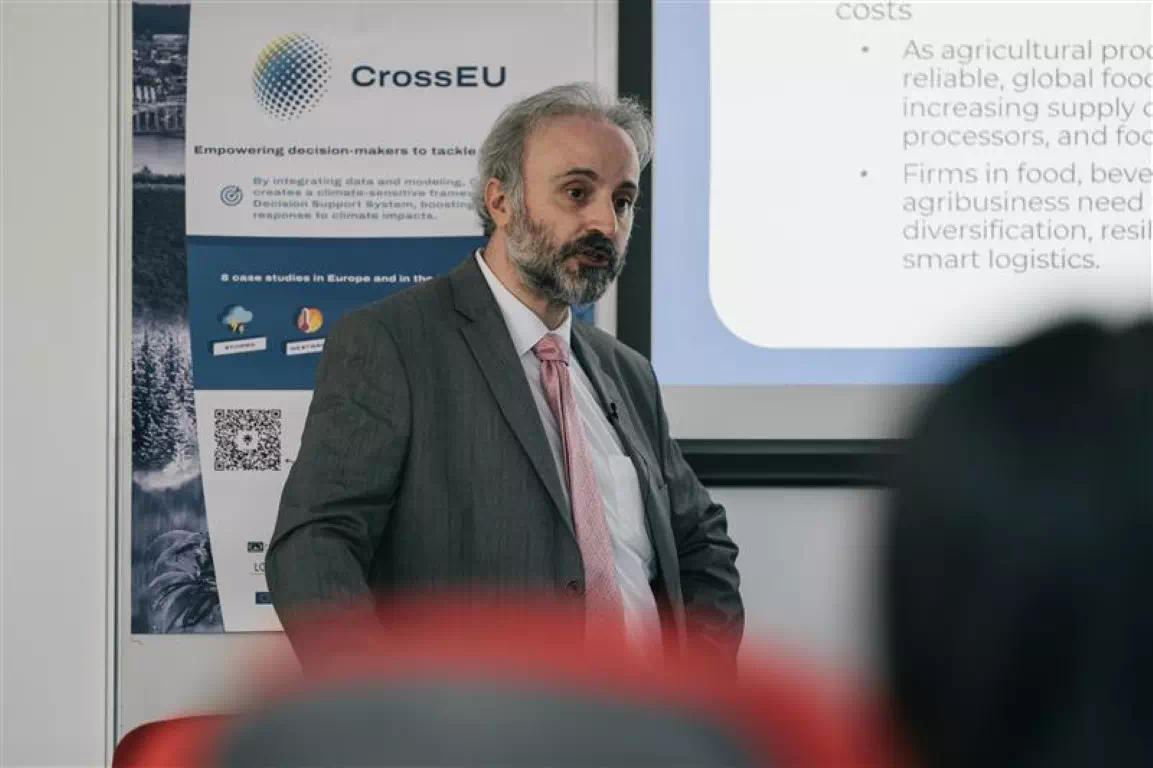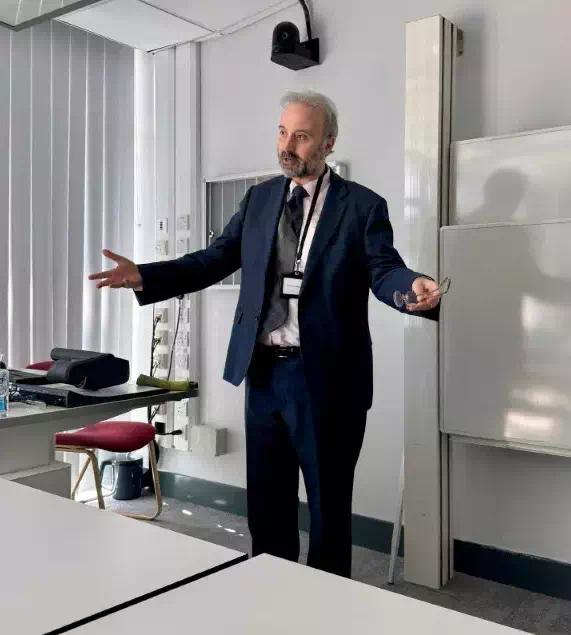Q&A WITH PROFESSOR NICHOLAS VASILAKOS
2025-09-26
Caption: Professor Vasilakos presenting at a recent CROSSEU session.
Featured Voices in CROSSEU: Q&A with Professor Nicholas Vasilakos
Understanding the Uneven Impacts of Climate Change
As CROSSEU reaches its mid-point, June has seen intense activity across the board—especially for Work Package 1 (WP1). With three major interim deliverables nearing completion and submission to the European Commission, the team is reflecting not only on progress but also on the deeper meaning behind the data.
In this edition, we sit down with Professor Nicholas Vasilakos, Professor of Sustainable Business Economics & Public Policy at Norwich Business School, University of East Anglia, to hear his reflections on the project, recent findings, and why the human dimension of climate change is central to his work.
What has it been like working on CROSSEU so far?Working on CROSSEU has undoubtedly been a rewarding and intellectually stimulating experience. The project brings together a diverse, interdisciplinary team to tackle some of the most pressing challenges posed by climate change—how it affects people’s lives, especially through income inequality, vulnerability, and social justice.
What makes the project stand out from other research initiatives?From my perspective, what makes CROSSEU unique is its ambition to go beyond averages and explore the uneven impacts of extreme weather events across regions and groups. This work is both technically demanding and deeply human. Whether we are modelling income distributions or generating high-resolution climate data, the underlying goal is clear: to support more informed and socially just policy responses.
How important has collaboration been to WP1's progress?Collaboration has been at the heart of this journey. Engaging with colleagues across institutions and countries—sharing methods, ideas, and frustrations—has not only pushed the research forward but also created a genuine sense of shared purpose. There’s real energy in knowing that our collective efforts can shape how Europe adapts to the climate challenges ahead.
Can you tell us about the findings you’ve recently presented?At recent workshops at King’s College London, Lancaster University, and UEA, we presented early findings from our econometric modelling. These show a clear and robust negative association between the frequency and intensity of extreme weather events and income. Most notably, households at the lower end of the income distribution experience consistently greater income losses, across all types of extreme weather considered. This reinforces the regressive nature of climate change and highlights the urgent need for fair and equitable policy responses.

Caption: Sharing results at the University of East Anglia.
Looking Ahead
As WP1 wraps up interim deliverables D1.2, D1.3, and D1.6, Professor Vasilakos extends his sincere thanks to all partners and a special shoutout to the UEA team: Katie Jenkins, Nicole Forstenhaeusler, Shanfei Zhang and Mercy Adaji. Their dedication has been key to the progress made so far.
“Onwards and upwards!”, as Nicholas puts it.
Stay tuned for the full reports and further updates as we continue to uncover how climate change impacts European societies—and what we can do to respond more justly.
What to read next

A joint session with CROSSEU SPARCCLE & ACCREU Project, co-organised with CARMINE Project
The session will explore the socio-economic dimensions of climate risk - focusing on human-centered impacts, vulnerabilities, and pathways for action and resilience.

CROSSEU: Advancing Climate Resilience Insights with a Decision Support System
Our partner WEMC has just published a new blog post highlighting recent progress in the CROSSEU project, focusing on the development of the Decision Support System (DSS).

ACCREU, CROSSEU & SPARCCLE Webinar
As a part of the ACCREU research project, a joint webinar series together with the sister projects CROSSEU and SPARCCLE was organised.